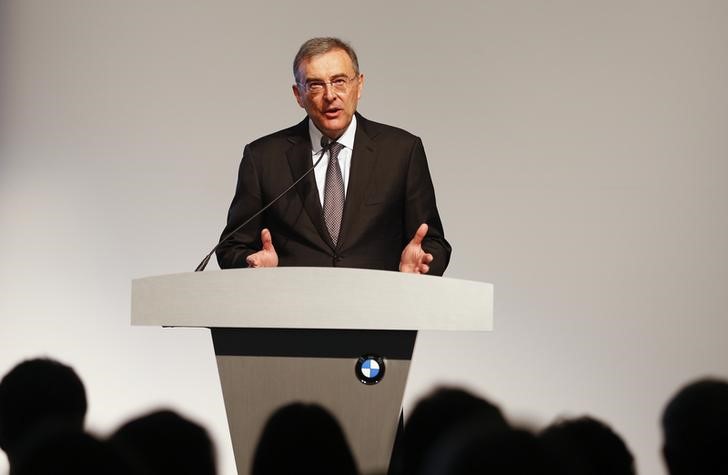By Edward Taylor
GENEVA (Reuters) - The new boss of BMW (DE:BMWG) will have to cope with the rise of electric cars, automated driving and new competitors, as well as the traditional uncertainties over consumer demand and fuel prices, its outgoing CEO said on Tuesday.
Technological changes can often wrongfoot entire industries, Norbert Reithofer told a roundtable discussion at the Geneva auto show as he prepares to hand over to Harald Krueger, the German luxury carmaker's current head or production, in May.
Krueger will have the usual problems associated with fluctuating oil prices and volatile markets. But there are new issues he will have to face too.
"Alternative drivetrains and networked and highly-automated cars will be the main challenges," Reithofer said, adding there was also the potential emergence of new competitors, such as technology firms Apple (O:AAPL) and Google (O:GOOGL).
"Another topic will be new players entering the field of autonomous driving who have never built a car before."
Being an established player was no guarantee of success.
"The typewriter was replaced by the personal computer and many people underestimated that. For me the auto industry is not shielded from new entrants who have know-how in software and networked cars," Reithofer said.
"They can emerge as very serious competitors when I look 10 to 15 years into the future. From BMW's point of view we have to take these competitors very, very seriously."
Asked whether he had met Apple CEO Tim Cook on a recent trip to Germany, Reithofer said no. He declined to comment on whether he had met Cook in the past.
Peter Schwarzenbauer, BMW's management board member in charge of the Mini brand, said the auto industry was now more exciting than at any time in the past 30 years.
"Two worlds are colliding here. Our world, focused on hardware and our experience in making complex products, and the world of information technology which is intruding more and more into our life," he told Reuters.
The winners will be those companies that understand how to build intelligent hardware, he said, adding it increasingly made sense for carmakers and tech firms to cooperate.
"We need to get away from the idea that it will be either us or them ... We cannot offer clients the perfect experience without help from one of these technology companies," Schwarzenbauer said, adding the dialogue was well underway.

Separately, Reithofer said sales of BMW, Mini and Rolls-Royce branded cars grew around six percent in the first two months of the year, and seven percent in February.